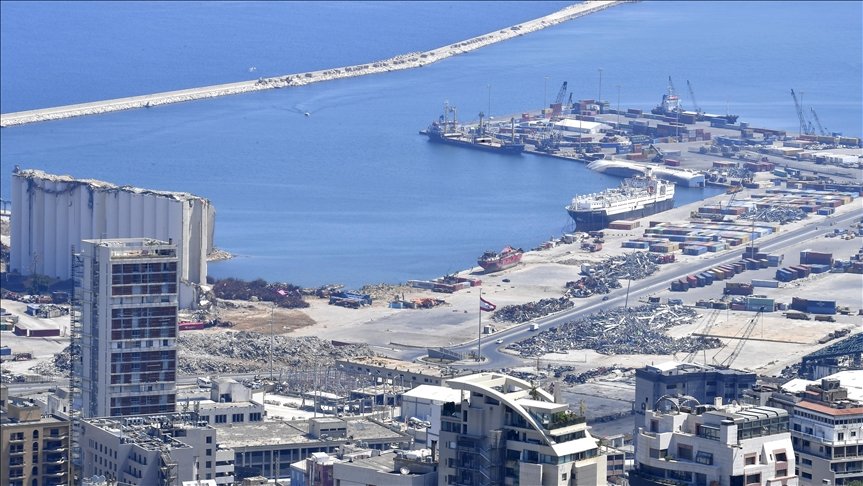BEIRUT, Lebanon
Although a year has passed since a massive explosion struck the Port of Beirut, its repercussions still weigh heavily on the Lebanese capital and its residents.
Since August 4, 2020 when an explosion shook Tripoli, daily life in the city has never been the same.
Today, Lebanon marks the grim anniversary of the blast, which left at least 200 people dead and thousands injured besides massive material damage.
Despite local and international initiatives to reconstruct the city, the process has largely stagnated and sporadic restoration efforts have not substantially reinstated the city’s pre-blast picture.
Mohamed Shams Al-Din of the Beirut-based International Information, a research company, estimated that the area damaged by the explosion extended over 8km diameter and affected about 62,000 housing units and 20,000 commercial establishments.
Speaking to Anadolu Agency on Wednesday, Shams Al-Din said the city suffers from a disruption in the economic cycle that has deepened since the explosion, noting that nearly 3,000 commercial establishments in Beirut remain out of service.
While some of the enterprises were forced to permanently shut their doors due to economic difficulties, others are either awaiting restoration or have decided to move outside the capital, according to Shams Al-Din.
Wrecked infrastructure
The researcher estimated economic losses caused by the explosion to be more than $3 billion, noting that many families are yet to return to their homes since they have not been restored.
Most of those affected by the explosion complain about not being compensated by insurance companies, with the exception of small compensations, with the companies citing that the results of the official investigations into the cause of the explosion have not been released.
According to the Beirut Syndicate of Engineers, 2,500 buildings were directly affected, of which 300 are at risk of collapsing, 250 at risk of partial crumbling, and 550 have cracks and are in need of restoration.
Besides residential buildings and commercial establishments, 968 heritage buildings dating back to the 19th century have been damaged to varying degrees by the explosion with 360 of them described as “severely damaged.”
According to the latest data of the Lebanese Ministry of Culture, only about 20% of 90 heritage buildings badly damaged by the blast have been restored to date.
The data also showed that about 60% of 102 heritage buildings partially damaged have been restored so far.
Wrecked infrastructure, such as the port, roads, and water and sewage networks, caused the Arab country major economic losses estimated by economist Patrick Mardini to be about $15 billion.
Mardini puts the cost of restoring homes and commercial establishments at about $3 billion.
Frustration
One of the major effects of the blast has been increasing unemployment in the capital given that many commercial establishments have closed business either due to damage or financial difficulties, according to Mardini.
He also fears that the biggest impact caused by the blast is psychological, noting that citizens have seen their morale drop drastically as worsening financial crisis, creating a general state of frustration.
The explosion has also caused air pollution in the capital, which environmental experts describe as being “high.”
Professor Najat Saliba of the American University in Beirut, who specializes in the study of air quality, blamed the air pollution on the damage caused to buildings, the subsequent demolition, and restoration work, and the rubble and debris collected inside and outside the port in the form of scrap hills.
In March, the Minister of Public Works and Transport, Michel Najjar, said that a French company was developing a study to find out the best way to remove the rubble and clean the port. However, the disposal work has not started yet to date.
Lebanon is facing a political crisis as Prime Minister-designate Najib Mikati has not yet been successful in forming a new government.
Observers believe that the failure to form a government makes it difficult for Beirut to rise again and especially reconstruct its port since the government formation opens the door to foreign aid.
Mikati said Monday he hoped a new government would be formed before the first anniversary of the devastating Beirut port blast.
For the past months, Lebanon has been suffering from an acute shortage of fuel due to the lack of sufficient foreign exchange, which has affected imports and caused frequent power cuts.










Discussion about this post